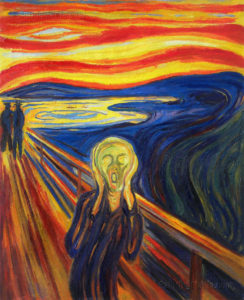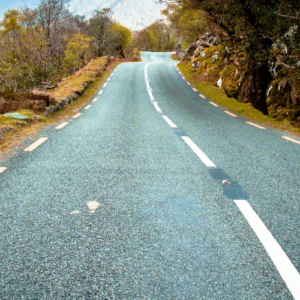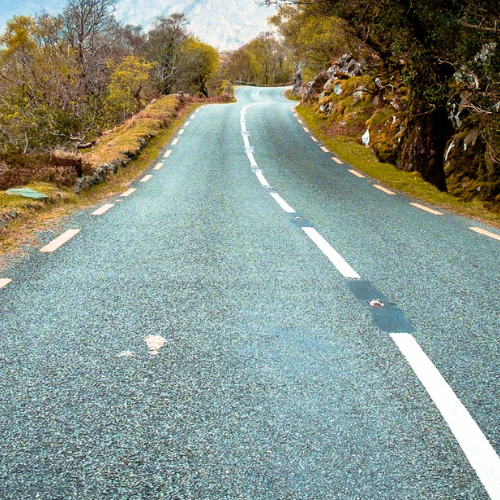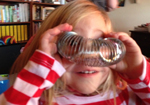What Scares You?
 After I posted the blog last week showing off my new set of wheels, I received some interesting emails from friends. Some were positive, but others, mostly from readers close to my age, were some variation on these two statements:
After I posted the blog last week showing off my new set of wheels, I received some interesting emails from friends. Some were positive, but others, mostly from readers close to my age, were some variation on these two statements:
“How can you drive something that big? I’d be terrified?
“Drive around the country by yourself? Won’t you be scared?
I won’t deny that the prospect of learning to drive a new vehicle, especially a very tall one like Sheila, was daunting. The emotion I felt as I drove it off the lot and into Los Angeles traffic was definitely trepidation, a close relative of fear (According to Grammarist, Trepidation is “a feeling of anxiety or apprehension about something one is about to take part in or is about to happen.” ) Well, o.k., I was terrified.
But fear is a healthy response to something that can cause us harm. I felt much the same way, and I suspect you did too, when I first learned to drive a car, to ride a bicycle, to sail a boat.
Rattlesnakes, Burglers, and Driving
Fear is what makes us wary of rattlesnakes on a hot hiking trail, or causes us to lock our doors at night. What troubled me about the responses of my readers, though, was the underlying assumption that if something scares us, we should avoid doing it. I spend a lot of time with my eight year old granddaughter, and I’ve watched her overcome her fear time and again, in Taikwondo, Roller Derby, Swimming. And we did too. When we were young, we got back up again from falls, climbed back onto the diving board after a belly flop, continued to sleep in our rooms after a bad dream. Research tells us that young people’s brains cope with stress and fear in a completely different way to adults, and that accounts for some of the difference. We also fear different things at different stages of our lives.
Very young babies exhibit a startle (Moro) reflex at sudden noises or a change in the way they are being held. They open and close their arms as if reaching for someone, and often cry. After about six months of age, children show fear of Halloween costumes, especially masks, strangers, and separation from their caregivers. As their brains develop, so does their imagination, and they may express fear of thunder, trains, imaginary creatures, the dark, or monsters. Parents will probably remember these fears, which often turn bedtime into the most challenging time of the day.
With their growing cognitive skills, children invent all kinds of reasonable scenarios that frighten them – the house burning down, letting lost, getting separated from parents in a public place. My granddaughter’s developing sense of reality combined with her active imagination allows her to develop story lines featuring natural events such as hurricanes, earthquakes, and fires, peopled by monstors, dragons, witches and ghosts or the child who sits behind her in class.. She isn’t always frightened by the stories she creates, but may actually be processing her fears by crafting and revising the characters and plot.
Phobias
In our teens and early twenties, phobias sometimes surface. Phobias are a type of anxiety disorder. People with phobias experience extreme fear of certain situations, animals, places, or object,s fear that people without the phobia consider unrealistic or irrational. The Anxiety and Depression Society of America tells us that 19 million people, or 8.7 percent of the U.S. population, are affected by phobias. (However, that means that over 90 percent of us are not.) Fortunately, phobias respond well to treatment by a mental health practitioner.
Here’s a fun fact:
“As we age, we produce less adrenaline, which causes racing hearts and dizziness. This means the intense fears we may have experienced in youth no longer trouble us as much. However, older people often experience a greater sense of vulnerability, so things like heights or big crowds become more of an issue” writes Jerry Kennard, Ph.D. Along with producing less adrenaline, we also may have a deteriorating sense of balance, and eyes that don’t see so well at night as they used to. These normal aspects of aging may contribute to our fears.
In the past, our ancestors feared tangible, immediate danger, from fire, floods, and hungry predators. According to an article in Psychology Today, “common fears today have more to do with the impression people make on others, as well as how judgments from others affect their self-worth. This hyper-focus on image may be exacerbated by the rise of the internet and social media culture.” Before you dismiss this as only an issue for the young and technologically plugged-in, think of all your friends who refuse to Skype or FaceTime with their grandchildren because of how they look on the screen.
I think fear is a good thing to have in our lives. We put ourselves in danger every time we enter a freeway on-ramp, and the heightened sensory awareness fear causes helps us bring our vehicle up to speed and enter the freeway safely. Fear can alert us to dangerous situations, and encourage us to take steps to eliminate them.
Fear Can Paralyze Us
But fear can also paralize us. If we succumb to the fight-or-flight fear response that fear of merging on to a freeway triggers, we’ll pull over to the side of the road and never reach our destination. As we age, our eyesight may diminish. Fear of driving at night may cause us to stop attending evening events. Our balance may get a little wonky – the resulting fear of falling may keep us from actively exercising. Some threats, like declines in health and physical strength, disability, loss of income, or loss of a spouse, particularly affect older people. In other words, there is merit to the fears. However, in my experience, when I avoid something that scares me, I start to feel like a failure. And the longer I go being afraid of something and avoiding it, the greater my fear becomes. Taking refresher driving classes designed specifically for seniors, wearing night glasses that reduce glare, exercising at a barre or in a chair – these are active measures we can take to make ourselves safe and reduce our fears.
Sometimes the only way past a fear is straight through it. Some of my readers will remember when I took up cycling after 30 years of not owning a bike. My son offered to give me a refresher lesson in San Diego, which helped a bit. But once I was back in Santa Cruz I couldn’t get myself to ride off my driveway and on to the road . In the end a patient friend and a gentle cycling instructor helped me push past my fear. I enjoyed weekly rides to Wilder Ranch with other senior cyclists for a couple of years after that, and was grateful I’d been able to eliminate the fear that had paralized me.
So, yes, my friends. Learning to drive my new RV is frightening. However, I’m getting more confident with each outing, and I no longer dream about all the things that could go wrong. I’m planning my drive around the country with a large map and a directory of National Parks. When the time comes, I’ll drive off my driveway and onto the road one more time, confident that the fun of the adventure – and good preparation – will pull me through the fear.
onto the road one more time, confident that the fun of the adventure – and good preparation – will pull me through the fear.
What frightens you? Please use the comment form below to share your own stories about fears that have paralized you, or fears you have overcome.
And type your email address into the subscription form if you would like to receive my take on the world whenever it appears here.





Just read the blog… After another road trip on my own last week I think fear isn’t a feeling I’d experience. I do admire you for taking on your road trip on your own. My issue would be the amout of driving involved not that it’s in an RV. My 1200+ miles in July was more than I’d want tackle. I do look forward to hearing about your adventures tho!!!
BTW You’ve got the RV thing down
Totally ironic, Marlene. I suppose it’s true that we teach what we most need to learn.
Yes we do.
This post is right up my alley, Marlene. You’ve articulated some really important aspects of fear and avoidance. As someone who used to live in a 34-foot motorhome that she refused to drive (left that up to my husband), I can say without a doubt that I regret allowing fear to make that decision for me and keep me from an even bigger adventure—one of trusting myself.
Thank you for your heartfelt thoughts, Helen. Ironic, isn’t it, that you are the one who helped me break through my own fear of revisiting painful events while writing my memoir . . .
I took some classes with you in Gavilan collage,you were one of my best Teachers there. I am glad I still get to keep learning from you, I admire you and feel bless to had you when I was starting my Early Child Development classes.
About the subject, one of my worse fears is to past away before my older son heals from his drugs addiction. I have a Grandson living with me since he was 18 months his mom walked away from both of them to do Rap, is how my son got all sad and messed up and start doing drugs, 7 years had past by and he is still having trouble with his emotion and letting it go. I feel hopeless trying to help him by taking care of his son so that way he can concentrate in getting strong. It has been a year since he started getting help, but he now fears everything and have no self esteem, he also lost trust in people including me, he feels treaten by me be in charge of his son, he sees me as his own enemy, when i just dont want my Grandson to be taken away from him. I pray to God each day to save him and to show him the light and totally recover his life.
Laura,
I am so sorry life has given you this burden to carry. Your son is very fortunate to have a mother who cares for him so much, and who is willing to raise his son until he can do so. I’m glad your son is getting help, and hopefully, as he kicks his addiction, his self-esteem will grow, and he will not fear the future so much. Regarding your own fear of passing away before your son is strong enough to care for your grandson, it’s very important that you take care of yourself as well as the child. Eat thoughtfully, try to get some exercise on a regular basis, sleep too although I know that’s hard with a little one. You have my positive thoughts and prayers that your family will rise to this challenge.